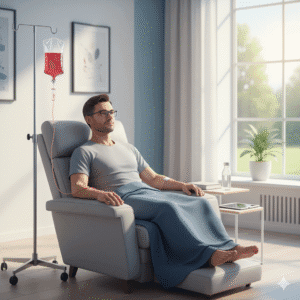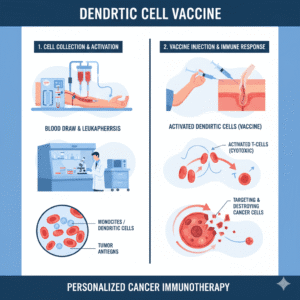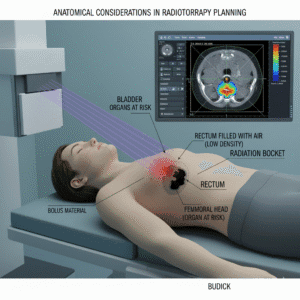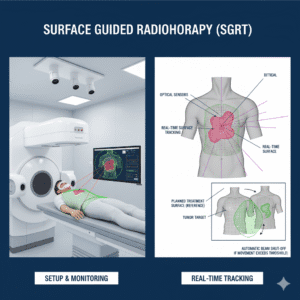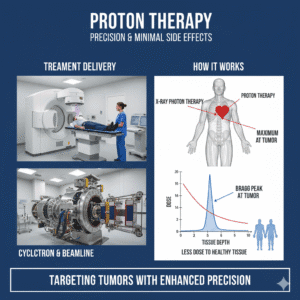
Chemotherapy
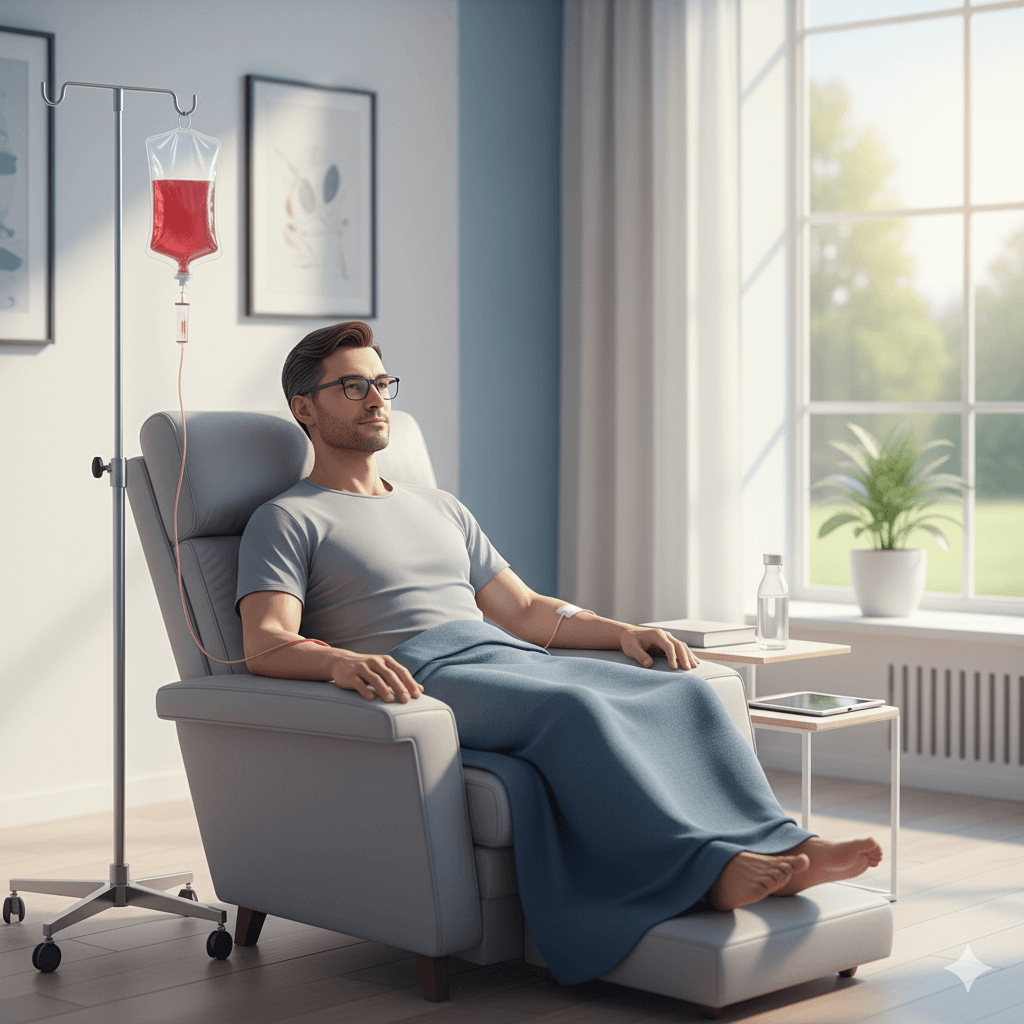
Q1: What is Chemotherapy?
A: Chemotherapy is a type of cancer treatment that uses powerful drugs to kill cancer cells or stop them from growing and dividing. It’s a common treatment for many types of cancer and can be used alone or in combination with other treatments like surgery, radiation therapy, or immunotherapy.
Q2: How does Chemotherapy work?
A: Chemotherapy drugs target rapidly dividing cells, which is a characteristic of cancer cells. These drugs circulate throughout the body, attacking cancer cells wherever they are. However, because they also affect some normal cells that divide quickly (like those in the hair, skin, and digestive tract), side effects can occur.
Q3: What types of cancer can be treated with Chemotherapy?
A: Chemotherapy can be used to treat a wide range of cancers, including breast, lung, colon, and blood cancers like leukemia and lymphoma. The type of chemotherapy, the combination of drugs, and the treatment plan depend on the type and stage of cancer, as well as the patient’s overall health.
Q4: How is Chemotherapy administered?
A: Chemotherapy can be administered in several ways, depending on the type of cancer and the specific drugs used:
- Intravenous (IV): The most common method, where the drugs are given through a vein.
- Oral: Taken as pills or capsules.
- Injection: Directly into a muscle, under the skin, or into a specific area of the body.
- Topical: Applied as a cream to the skin, typically for certain types of skin cancer.
Chemotherapy is usually given in cycles, with treatment periods followed by rest periods to allow the body to recover.
Q5: What are the side effects of Chemotherapy?
A: Side effects vary depending on the type and dose of chemotherapy, as well as the individual’s response. Common side effects include:
- Fatigue
- Nausea and vomiting
- Hair loss
- Mouth sores
- Loss of appetite
- Increased risk of infection
- Anemia and other blood cell count changes
Most side effects are temporary and can be managed with the help of your healthcare team. It’s important to report any side effects you experience so they can help you feel more comfortable.
Q6: How effective is Chemotherapy?
A: The effectiveness of chemotherapy depends on the type and stage of cancer, as well as how the cancer responds to the treatment. In some cases, chemotherapy can cure cancer, while in others, it may shrink the tumor, slow its growth, or relieve symptoms. Sometimes, chemotherapy is used to reduce the size of a tumor before surgery or to destroy any remaining cancer cells after surgery.
Q7: Can Chemotherapy be combined with other treatments?
A: Yes, chemotherapy is often used in combination with other treatments. It may be given before surgery (neoadjuvant therapy) to shrink a tumor, after surgery (adjuvant therapy) to kill any remaining cancer cells, or alongside radiation therapy or immunotherapy to enhance the overall effectiveness of treatment.
Q8: What should I expect during Chemotherapy?
A: During chemotherapy, you’ll receive treatment according to a schedule set by your oncologist. The number of sessions and their frequency will depend on your specific treatment plan. Your healthcare team will monitor your progress, manage any side effects, and adjust the treatment as needed. It’s important to follow all instructions and communicate openly with your care team.
If you have more questions about chemotherapy or how it might fit into your cancer treatment plan, don’t hesitate to talk to your Oncologist. They can provide detailed information tailored to your specific situation.
Related Post


CyberKnife
August 6, 2024
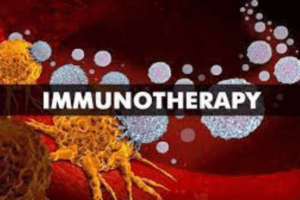
Immunotherapy
August 7, 2024
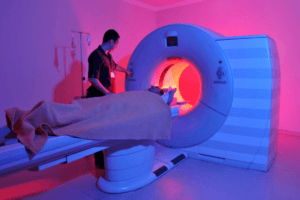
MRI Linac
August 7, 2024

Gamma Knife
August 7, 2024
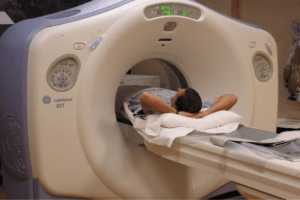
Cancer Screening
August 22, 2024
Gallery
Click below to book a clinic appointment
Ask More Questions Send Query On Email


